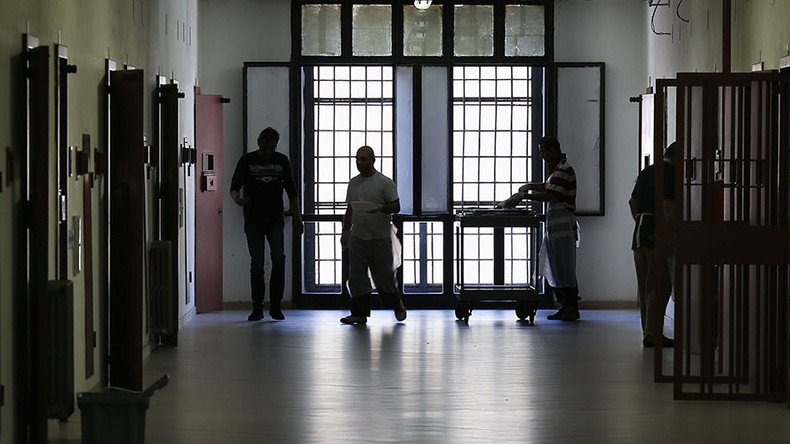Communities, not crime: Attorney General recommends less jail time, more community service

The US has the highest incarceration rate in the world, two of the results of which have been overcrowded prisons and damaged communities. Now Attorney General Loretta Lynch is pushing courts to decriminalize petty crimes and assign community service.
In a nine page letter from the Civil Rights Division, the US Department of Justice (DOJ) advised changing how courts handle the sentencing of “individuals accused of misdemeanors, quasi-criminal ordinance violations, or civil infractions.” The DOJ is using more than words to encourage courts to follow their advice. For court systems that receive federal funds, a failure to heed their words could result in being cut off.
Bronx woman spends 27 months in solitary, jail charges dismissedhttps://t.co/bC3frm5EBlpic.twitter.com/JwjgS43ceg
— RT America (@RT_America) March 22, 2016
The letter not only pleads the case that jailing or fining individuals for minor crimes does more damage than good, but that the fees and fines accrued through the judicial system are cause for distrust from citizens, saying, “these practices are geared not toward addressing public safety, but rather toward raising revenue, they can cast doubt on the impartiality of the tribunal and erode trust between local governments and their constituents.”
The DOJ outlines a set of seven guidelines to help the justice system protect individuals’ rights. To summarize, it advises:
- Not jailing individuals who don’t pay fees or fines, unless it can be proven that the fees were not paid intentionally.
- Considering alternatives – such as community service – in lieu of jail time or fines
- Courts cannot demand prepaying fines before having a judicial hearing
- Courts must provide notice and council before enforcing fines
- Warrants cannot be used as a debt collection service for the courts, same for suspending licenses
- Bail or bond practices cannot be used in situations where the individual does not have the money to pay for their release
- Courts are responsible for their staff and contractors and any unconstitutional practices they use
This is just the latest in a recent effort by the government to reform the criminal justice system. Earlier this month, Minnesota lawmakers revealed plans to overhaul drug sentencing and build new private prisons in order to reduce prison overcrowding, the Star Tribune reports.
‘$1.2 billion slush fund’: Justice Dept. resumes asset forfeiture ‘equitable sharing’https://t.co/KN6ZkUCpBtpic.twitter.com/0hF85O57Ln
— RT America (@RT_America) March 29, 2016
One Indiana jail reported spending an extra $3,000 due to overcrowding. The Vigo County Jail in Terre Haute is always overcrowded, according to Sheriff Greg Ewing. He told the Tristate Homepage that shipping the surplus criminals to other jails costs the taxpayers $35 for each inmate per day.












